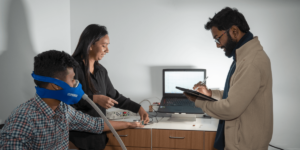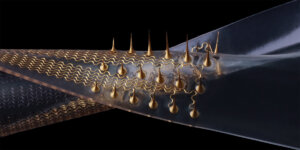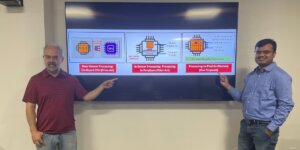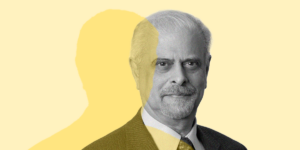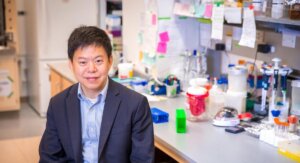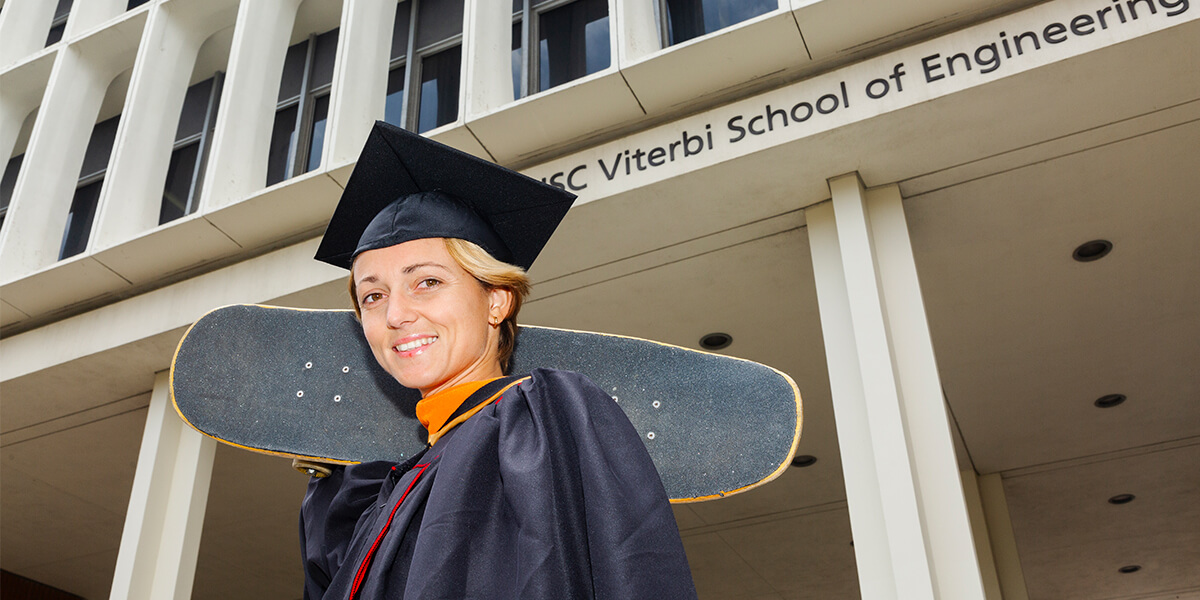
Originally from Spain, Marta Davila Mateau is graduating in May with a master’s in computer science. Photo/Angel Ahabue.
This is an as-told-to essay based on a conversation with Marta Davila Mateu, (M.Sc. Computer Science ’24), a skateboarder, surfer and theoretical computer scientist who graduates this May.
I was a very curious kid. I liked telescopes because I wanted to look into space. I liked microscopes because I wanted to look at small things. And I always loved building things.
I think that’s why I love theoretical computer science.
Professor Mukund and I have spent many hours on the whiteboard making algorithms. Like, actually making them. We’re not making them with wood. But we’re making them with numbers, ratios and relations. We’re making them with our brains.
Mathematics is the foundation of the world.
If society collapsed and everything in the world was destroyed, one thing would still remain true: two plus two equals four. I think that’s amazing; it’s just beautiful.
I grew up in a small town called Sitges, just south of Barcelona near the ocean—the kind of cute place where everyone knows each other.
My mom was a windsurfer back in her day and my dad sailed competitively. My mom founded one of the first environmentally conscious stores in Spain during the 90s.
Growing up, I was always in the ocean. I discovered surfing when I was in my early teens. Then, when I was about 16, for a few months there were no decent waves, so I decided to go to the local skatepark instead. The rest is history.
When I joined USC, I got involved with the surfing team and started competing in national competitions and meeting all these amazing surfers who go to the same school as me. I still remember the first time I got paid $100 to skate—I couldn’t believe it!
I think succeeding at surfing or skating and computer science takes the same kind of personality.
When you’re skating, you try a trick, you fail. You tweak it a little bit each time, until finally, you nail the trick, or find the perfect wave.
The same thing happens in computer science. You’ve been thinking about a problem or an algorithm for a while. You try it, it doesn’t work. You tweak it, you run it again, it doesn’t work. But you keep trying until you figure it out. In theoretical computer science, we think about one thing for hours, days, weeks, even months.
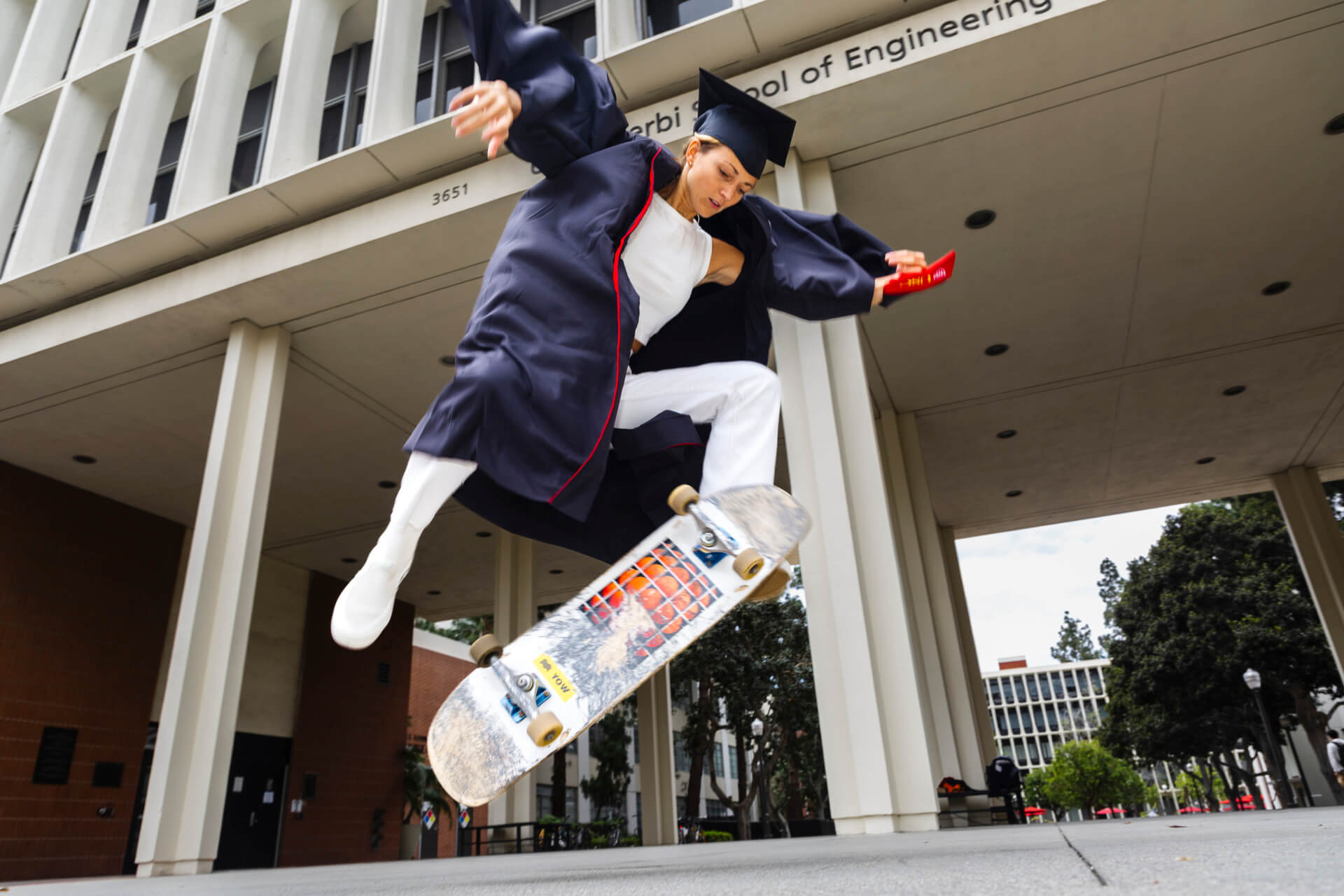
“When you’re skating, you try a trick, you fail. You tweak it a little bit each time, until finally, you nail the trick, or find the perfect wave.” Photo/Angel Ahabue.
If I were to describe what I do to my skate friends?
I would say my goal is to make both the life of computer scientists more efficient, and programs more efficient.
Now, you might think that’s actually not that important. But if you think about it, nowadays, everything is a computer.
If you can just make the base software on those computers one percent more efficient—just one percent—imagine how much electricity you would save. Imagine the environmental impact.
Professor Mukund and I are trying to solve recursive problems without using auxillary, or “helper,” functions. Put simply, we’re trying to develop a method to solve a high-level task— ensuring program security for instance or improving efficiency—without needing to explicitly understand or use lower-level components.
Think of it as Russian nesting dolls—you want the big doll on the outside, without needing all the little nesting dolls inside.
Solving recursive problems would, in turn, solve a lot of open problems. For instance, it could solve efficiency problems, which could optimize flight routes and reduce fuel consumption.
A lot of researchers are working on this problem, but nobody has figured it out yet.
Last year, I gave a talk at a conference in Portugal, and the researcher who developed the most state-of-the-art methods in this field told me he stopped researching in this area because he couldn’t figure it out.
He told me if I figure it out, he’ll come back to the field. No pressure.
But seriously, it’s really cool that someone so important in the field said that to me, a master’s student. That was probably the biggest compliment ever. I’m hoping we will have solved the problem by summer. We are at the point where we are writing the proofs and tweaking it a little bit, but we’re very close.
After graduation, I’m staying on at USC to do my PhD with Professor Mukund. He is a great advisor; he really cares about his students. If he says we can solve this open problem, I believe him. The way we are proposing to solve it is very out of the box. That’s why I think it’s possible—we’re thinking about it in an entirely new way.
It’s like a skate trick: at some point, I’m going to land it.
Published on May 2nd, 2024
Last updated on May 16th, 2024




